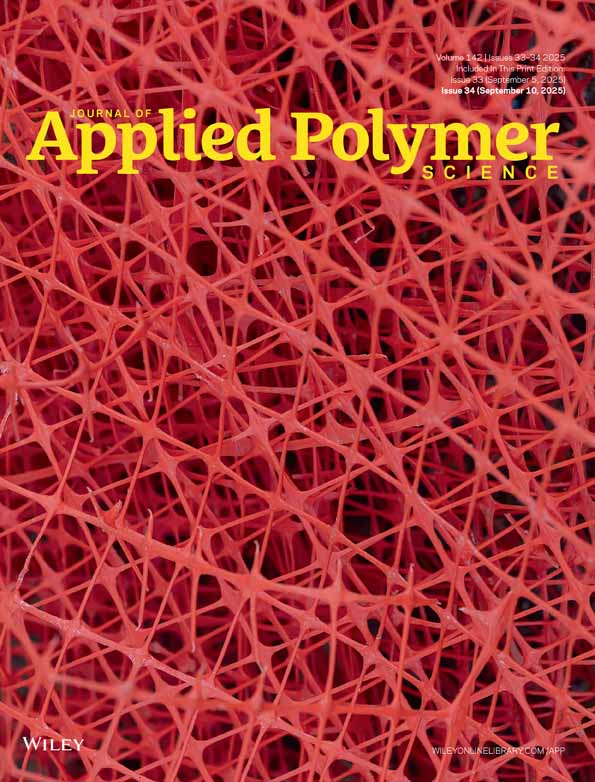Electrosynthesis of conducting poly(p-phenylene)
Abstract
The polymerization of benzene was studied in bulk and in nitrobenzene using BF3O (C2H5)2 as a supporting electrolyte at platinum electrodes to obtain poly(p-phenylene). The polymers were formed as a black thready mass on the anode and their yields were restricted to the area of the anode in the electrochemical cell. The yields of the polymers formed in the bulk and in nitrobenzene were almost equal, although electrical resistances of the polymers obtained from the bulk were relatively lower. Cyclic voltammetry measurements suggest that the polymerization of benzene took place from the species generated anodically in situ. © 1993 John Wiley & Sons, Inc.




